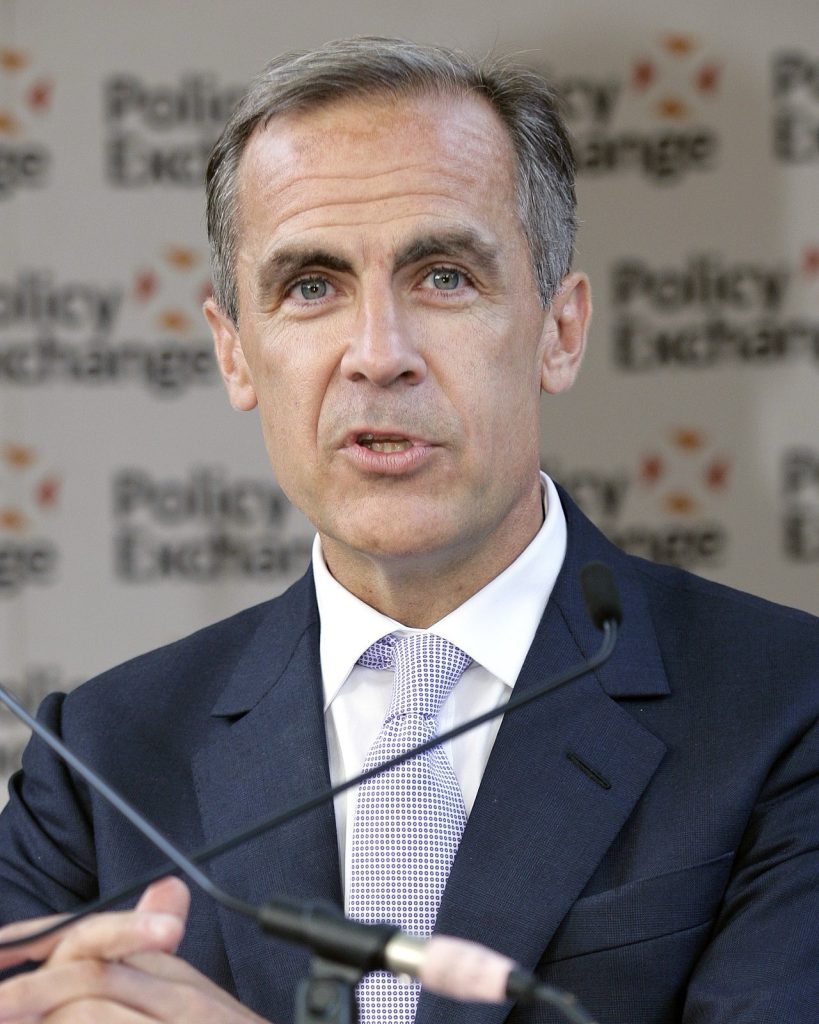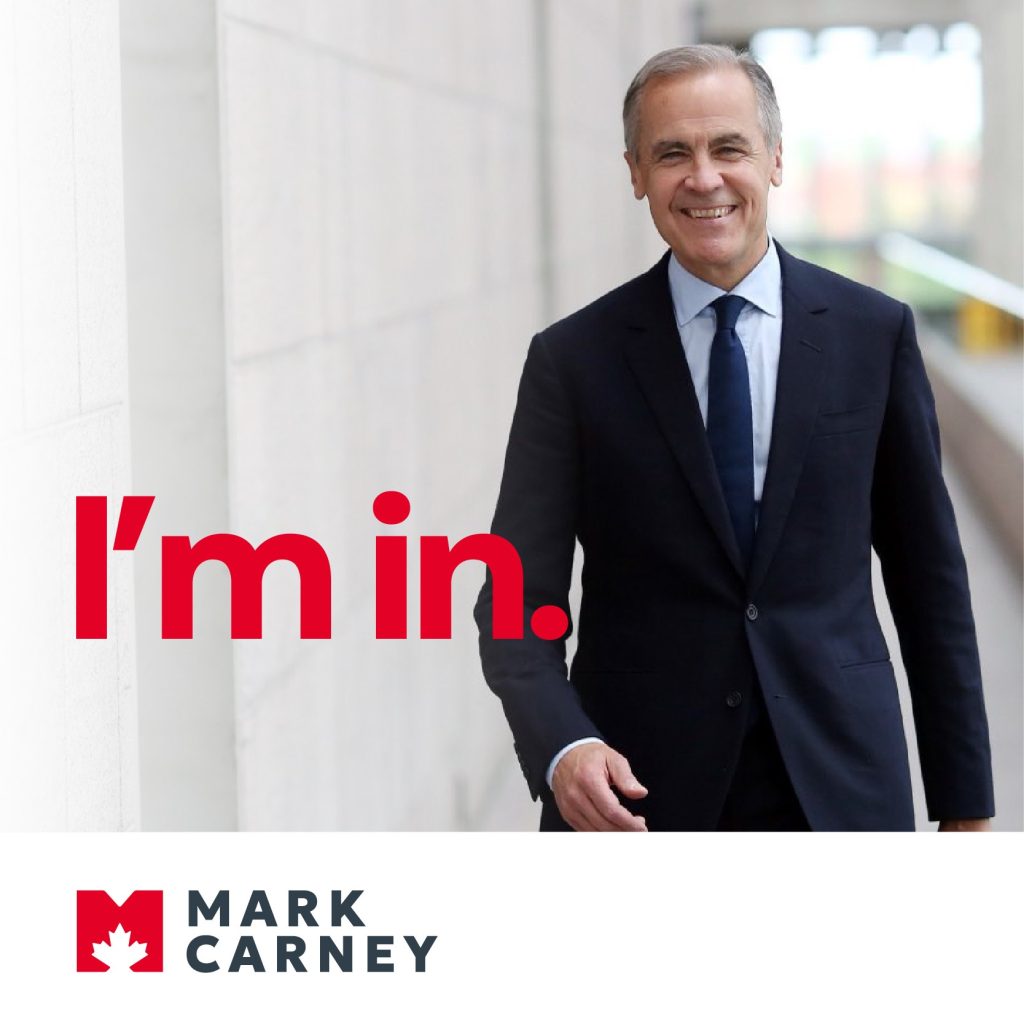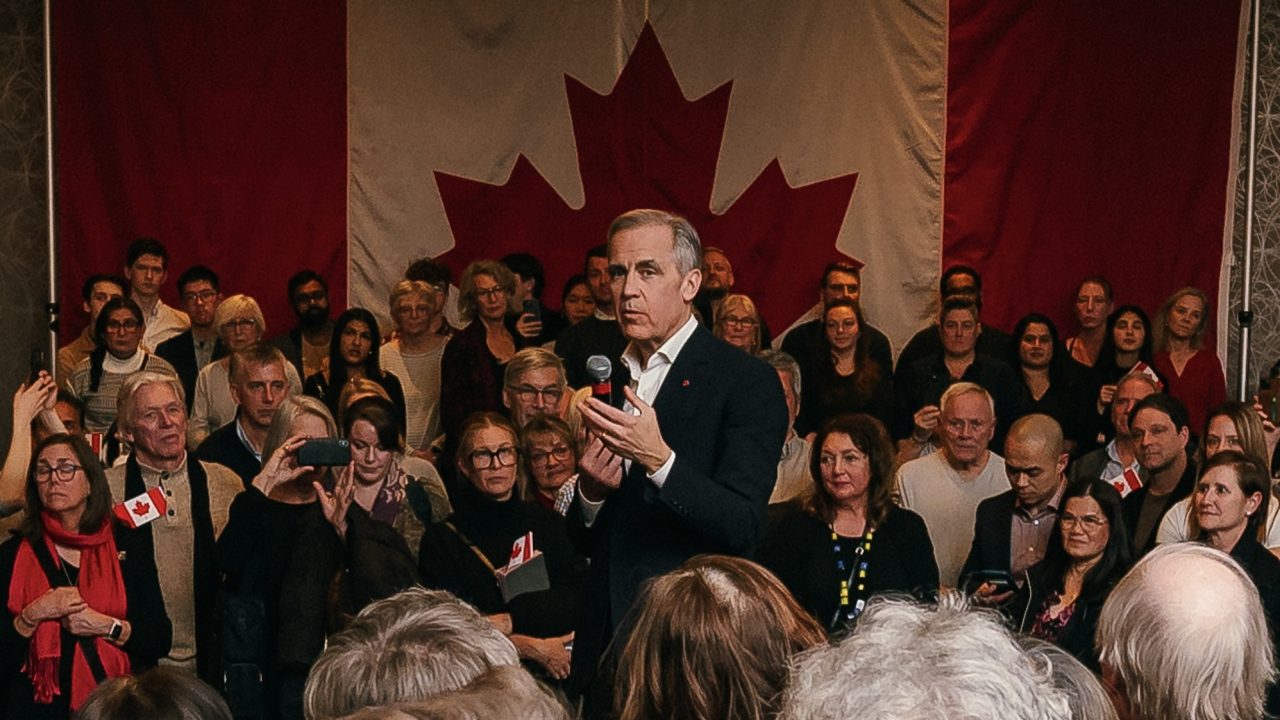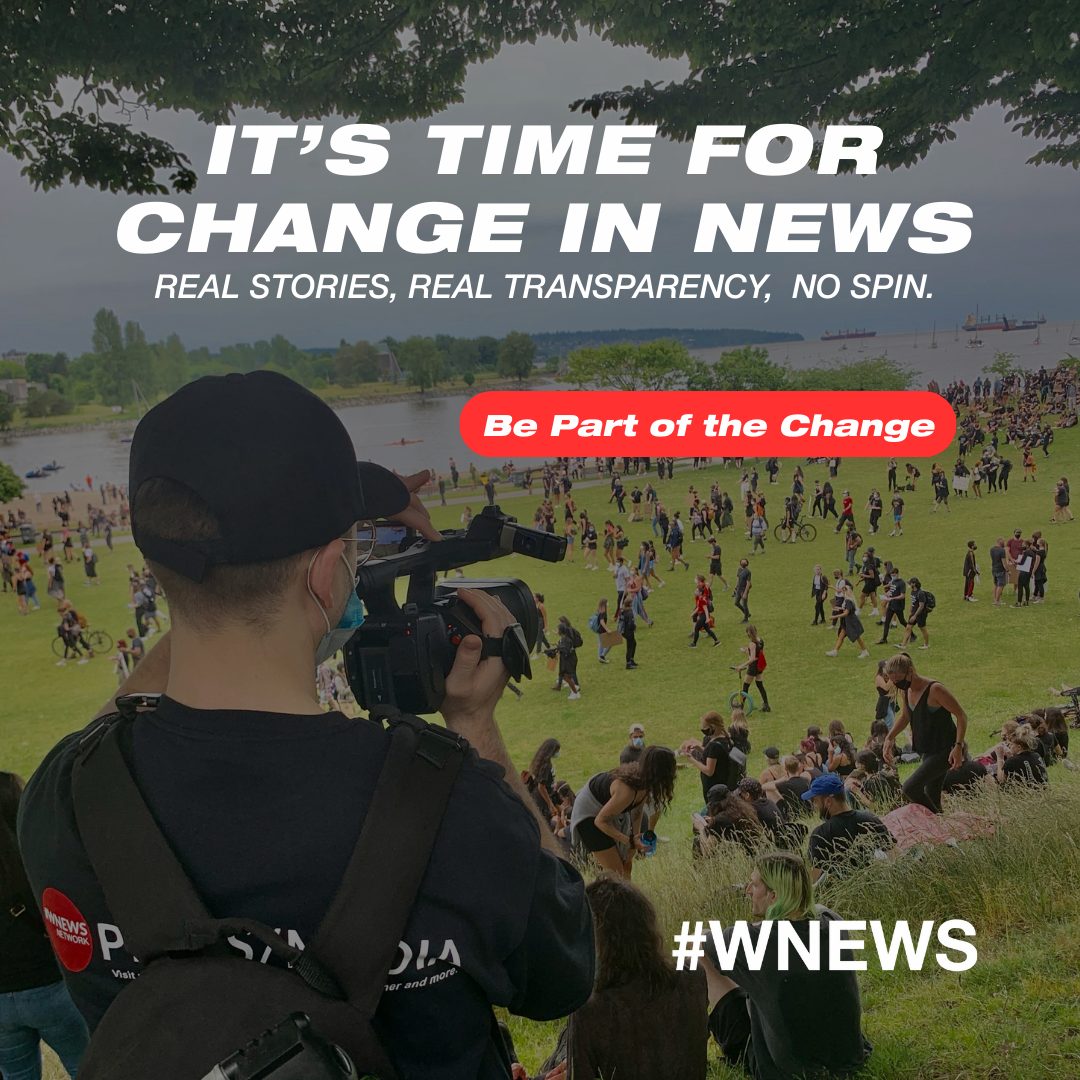Ottawa, ON, Canada (WNEWS) – The Liberal Party of Canada has made it abundantly clear that Mark Carney is their preferred candidate. However, in their hasty decision to crown him as leader and, consequently, their next Prime Minister, they have disregarded fundamental democratic principles.
With the recent disqualification of two rising stars—Ruby Dhalla and Chandra Arya—the leadership race has turned into nothing more than a rigged coronation. The hypocrisy of a party that prides itself on being a champion of democracy, diversity, and minority representation is impossible to ignore. Add to this the embarrassing controversy surrounding Carney’s campaign launch, which included a blatant trademark infringement scandal, and the entire process reeks of arrogance, entitlement, and bad political strategy.
The Liberals are not just making a mistake by forcing Carney onto Canadians; they are setting themselves up for an internal collapse. If they continue down this path, they may find themselves alienating their own base and handing the next election to the Conservatives on a silver platter.
A Leadership Race Without Real Competition is Not a Leadership Race
Leadership races are meant to be a proving ground for future Prime Ministers. They provide an opportunity for candidates to showcase their vision for the country, debate policy differences, and earn the trust of their party and the electorate. In short, they are supposed to be democratic. But the Liberals have chosen to go in a different direction—one that is eerily reminiscent of an authoritarian regime selecting its next leader behind closed doors.

The recent disqualification of Ruby Dhalla and Chandra Arya is not just suspicious; it is damning. Dhalla, a former Member of Parliament with years of political experience and a strong record of advocacy, was expected to be a serious contender. Chandra Arya, another potential candidate, brought a wealth of experience and represented a growing segment of the Liberal base. But instead of allowing these candidates to participate in the race and let members decide who should lead, the party conveniently found reasons to disqualify them.
The official reasoning behind their disqualifications has been vague at best, with party insiders citing “technicalities” and “process-related issues.” But to anyone paying attention, the real reason is clear: both candidates posed a potential threat to Mark Carney’s coronation. The Liberals are trying to manufacture a smooth path for Carney to take the reins without any real competition.
While Mark Carney appears to be the Liberal Party’s predetermined choice, the remaining leadership candidates—Chrystia Freeland and Karina Gould—are little more than placeholders in what is shaping up to be a staged contest. Both women have had significant roles in the Trudeau government, but their chances of actually securing the leadership remain slim, largely because the party establishment has already made it clear that Carney is their preferred successor. Freeland, despite her high-profile roles as Finance Minister and Deputy Prime Minister, carries significant political baggage, while Gould lacks the national recognition and influence needed to mount a serious challenge.
Freeland’s sudden resignation in December 2024 raised eyebrows, as it came at a time when Trudeau’s government was already struggling with declining public support. Officially, she framed it as a personal decision to step back, but the timing suggested something more strategic. Having been one of Trudeau’s closest allies and a key architect of the Liberal government’s economic policies, her exit fueled speculation that she was either distancing herself from a sinking ship or making room for Carney’s ascension. If she had serious leadership ambitions, stepping away from such a powerful position was an unusual move—especially considering that Deputy Prime Ministers are typically well-positioned to succeed the leader. Her departure only reinforced the perception that Carney’s takeover was pre-planned, and that even a prominent figure like Freeland wasn’t going to be seriously considered by the party machine.
As for Karina Gould, while she has been a competent minister and a loyal member of the Trudeau cabinet, she lacks the political weight to make a real impact in the leadership race. Her candidacy is unlikely to pose any challenge to Carney, and it’s hard to shake the feeling that her presence in the race is merely an attempt to make the contest appear somewhat competitive. Unlike Carney, she has no significant financial or corporate connections to rally behind her campaign, and with the Liberals already facing an uphill battle in the next federal election, the party is unlikely to take a risk on a relatively unknown candidate.
In the end, the presence of Freeland and Gould in the leadership race does little to change the outcome. The Liberal establishment has already laid the groundwork for Carney’s smooth transition, making it clear that this is not an open contest but a carefully managed succession plan. While the remaining candidates may go through the motions of running, their presence ultimately serves as little more than a smokescreen to maintain the illusion of democracy. The real decision has already been made.
This is a party that spent years preaching about democracy, attacking the Conservative Party for being undemocratic and accusing them of exclusionary politics. And yet, when faced with their own leadership race, they resort to the very tactics they once condemned. The hypocrisy is staggering.
Parallels with 2024 Democratic Party’s Replacement of Biden with Harris
The Liberal Party’s push to install Mark Carney as leader without a real contest bears striking similarities to how the Democratic Party in the United States maneuvered to position Kamala Harris as their next leader. In both cases, the party establishment appears to be bypassing the traditional democratic process to ensure their preferred candidate ascends to power, despite significant doubts about their electoral viability. The Democrats, facing Joe Biden’s declining popularity and concerns over his ability to campaign effectively, have subtly worked behind the scenes to elevate Harris, much like how the Liberals are clearing the field for Carney. Instead of allowing a genuine primary process where multiple candidates could present their visions, both parties seem determined to limit competition in favor of a handpicked successor.
One glaring parallel is the way both parties have blocked or discouraged viable alternatives. In the Democratic Party, candidates like Gavin Newsom and other rising stars have been subtly pressured to fall in line behind Harris, even though her approval ratings remain weak and she failed to gain traction in the 2020 primaries. Similarly, the Liberal Party’s move to disqualify Ruby Dhalla and Chandra Arya suggests an orchestrated effort to eliminate potential challengers to Carney. Both situations expose the hypocrisy of parties that publicly champion democracy and fair representation while internally engaging in backroom dealings to control succession.
Another key similarity is the risk of alienating core voters. Just as the Democratic Party risks backlash from voters who are frustrated with being told that Harris is the inevitable choice, the Liberals are running the same risk by shutting down legitimate leadership competition. Many grassroots supporters want a real say in their party’s future, and when they see their leadership being preordained by party elites rather than earned through a fair process, they may disengage or even switch allegiances. Both parties seem to be betting that voters will simply fall in line, but history has shown that forced political coronations often backfire.
Ultimately, both the Democratic and Liberal parties are attempting to engineer leadership transitions rather than allowing them to occur organically through a competitive and open process. In doing so, they are undermining the very democratic principles they claim to uphold. Whether it’s Carney in Canada or Harris in the U.S., these efforts to impose leadership from the top down may end up weakening, rather than strengthening, their parties in the long run.
Mark Carney: The Liberal Party’s Out-of-Touch Choice

Mark Carney may have an impressive resume in the world of finance, but that does not make him a suitable political leader. While he served as Governor of the Bank of Canada and later as Governor of the Bank of England, his experience in the bureaucratic and financial sectors does not translate to understanding the needs of everyday Canadians.
Unlike Justin Trudeau, who at least had political and public exposure before stepping into the Prime Minister’s office, Carney has never been elected to public office. He has never been tested in the political trenches. He has never had to answer to constituents, navigate the complexity of legislative politics, or deal with the brutal nature of party leadership. His name may carry weight in economic circles, but he is an unproven entity when it comes to leading a government.
And yet, the Liberal Party seems willing to bypass all of these concerns in their rush to place him on the throne. The question is: why?
The answer likely lies in desperation. With Trudeau’s popularity in freefall, the Liberals are scrambling to find a new face that can salvage their electoral prospects. But instead of allowing an open and fair leadership contest to find the best candidate, they are pushing Carney forward under the illusion of inevitability. The reality, however, is that his candidacy is already off to a disastrous start.
A Campaign Launch Married by Scandal

Before Mark Carney could even gain momentum in his campaign, he walked straight into an embarrassing controversy. His campaign’s branding and logo bore a striking resemblance to that of MetCredit, a well-known Canadian debt collection agency.
This kind of oversight might seem like a minor issue, but it is a glaring sign of either incompetence or arrogance—or both. In politics, branding is critical. Every element of a campaign’s visuals is meticulously planned and vetted to avoid legal issues and ensure uniqueness. The fact that Carney’s team failed to do their due diligence raises serious concerns about their preparedness and judgment.
Trademark infringement is not a small matter. If a campaign cannot even get something as fundamental as a logo design right, how can it be trusted to manage the complex affairs of a country? Worse, this blunder makes Carney look amateurish at a time when he needs to project strength and competence.
And yet, despite this early misstep, the Liberal establishment is still moving full steam ahead, pretending as though none of this matters. But it does matter. It is an indication that Carney is not the flawless candidate they are trying to sell to the public.
The Liberals Are Ignoring Their Own Base
Perhaps the most dangerous aspect of this coronation is that it risks alienating the very people the Liberals need to keep on their side.
By sidelining strong candidates like Dhalla and Arya, the party is sending a clear message to minority communities: you are welcome to vote for us, but you are not welcome to lead us. This is an insult to the very voters the Liberals claim to represent.
It is no secret that the party has relied heavily on support from diverse communities across Canada. But that support is not unconditional. If voters begin to see the Liberals as hypocritical and self-serving—preaching inclusivity while excluding minority candidates from leadership—there will be consequences at the ballot box.
Additionally, by fast-tracking Carney, the Liberals risk alienating grassroots party members who want a real say in their next leader. Many within the party are frustrated by the lack of a genuine contest and the heavy-handed tactics used to clear the way for Carney. That frustration could lead to a fractured party, internal dissent, and a disengaged base—just in time for the next election.
Handing the Next Election to the Conservatives
The Liberals are already facing an uphill battle heading into the next election. With public trust in Trudeau’s government eroding and Pierre Poilievre gaining traction as a formidable Conservative leader, the Liberals cannot afford to make unforced errors.
Yes, certain recent polls have indicated a narrowing of the gap between the Liberals and the Democrats. However, it’s important to remember that the Democrats also held a similar lead or close in numbers before the 2024 US Presidential Elections with their prime candidate, Kamala Harris. As we all know, the outcome of that election was quite different.
Yet, by orchestrating a leadership process that is so obviously rigged, they are playing right into their opponents’ hands. The Conservatives will undoubtedly use this fiasco to paint the Liberals as out-of-touch elitists who do not even trust their own party members to choose a leader.
And if Carney does become leader, he will be stepping into an election battle with no real political experience, no connection to working-class Canadians, and a campaign already tainted by controversy. That is not a winning formula.
The Liberals had an opportunity to conduct a fair and transparent leadership race that could have revitalized the party. Instead, they chose backroom politics and elitist maneuvering. And they may very well pay the price for it.
Final Thoughts: The Liberal Party’s Self-Inflicted Wound
The Liberal Party’s decision to rig their leadership race in favor of Mark Carney is not just a betrayal of democratic principles—it is a strategic blunder that could cost them dearly. By disqualifying candidates like Ruby Dhalla and Chandra Arya, they have exposed their own hypocrisy on diversity and representation. By rushing to coronate Carney, they have chosen an untested, inexperienced leader over genuine competition. And by botching even the most basic elements of his campaign launch, they have handed their opponents easy ammunition.
Canadians are watching. And if the Liberals think they can get away with this level of arrogance, they may be in for a rude awakening at the polls.










